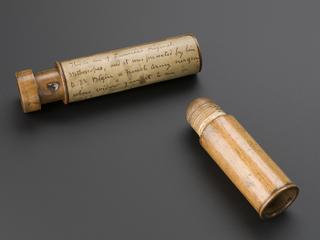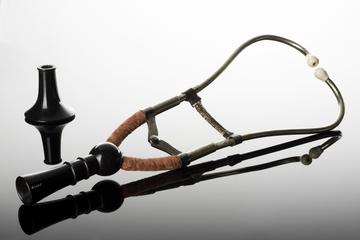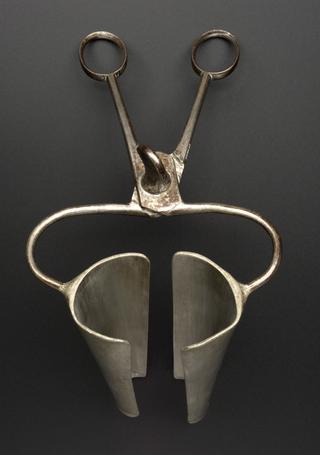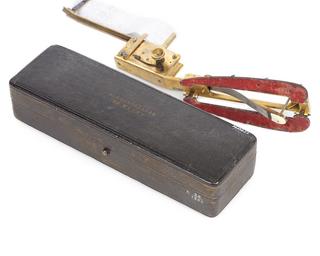






HPV (human papillomavirus) self-screening test kit, including a FLOQSwab®, tube and cap, made by Copan, participant information booklet, questionnaire, information sheet 'How to return your self-sample', clear plastic specimen bag, swab wallet, return mailing envelope, and blue outer kit envelope, trialled by people aged 25-64 overdue for a cervical screening check and living in Barnet, Camden, Islington, Newham or Tower Hamlets, part of the YouScreen trial led by King’s College London, Chief Investigator Dr Anita Lim, funded by the North Central London and North East London Cancer Alliances, sponsored by UCL and coordinated by the Cancer Research UK & King’s College London Cancer Prevention Trials Unit, trial dates January – December 2021
31,000 self-screening test kits will be sent out as part of a trial to people aged 25-64 overdue for cervical screening and living in Barnet, Camden, Islington, Newham or Tower Hamlets. London has one of the lowest uptakes of cervical screening. Some of the barriers to attending cervical screening include embarrassment, fear of pain, practical barriers of getting an appointment amid busy lifestyles, and cultural or religious reasons.
Cervical screening is used to detect HPV (human papillomavirus). Almost all cases of cervical cancer are caused by high-risk HPV (human papillomavirus). For a small number of people, their immune system will not be able to get rid of high-risk HPV and this can lead to cell changes on the cervix. If left unmonitored or untreated these cell changes can develop into cervical cancer.
As part of the home test, people carry out the swabs in their homes and return their results by post. If HPV is detected, they will be invited to their GP for follow up tests to check for cell changes. Dr Anita Lim who is in charge of the trial hopes that self-screening will help more people get protected from a largely preventable cancer.
Details
- Category:
- Clinical Diagnosis
- Object Number:
- 2021-648
- Materials:
- paper, polyethylene, cardboard, polystyrene, high density polyethylene and nylon
- Measurements:
-
swab cap: 12 mm 32.9 mm,
swab transport tube: 155 mm 12 mm,
swab: 151 mm 5 mm,
bookelts: 210 mm x 148 mm
outer envelope: 240 mm x 275 mm
- type:
- self-test




